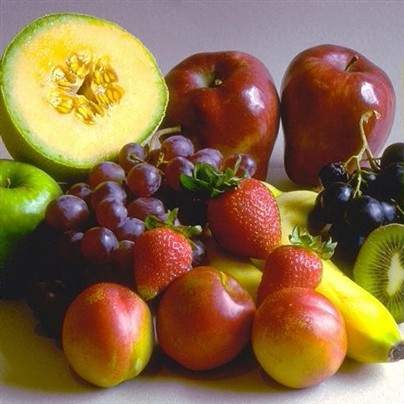
Important Vitamins for Health
Fourteen kinds of vitamins are known to science.
They are known as vitamins A, the B group, C, D, E and K.
All of these vitamins help to carry out essential chemical changes within cells and are therefore necessary for good health.
Put simply, if we do not get enough of these vitamins we are at risk of developing a number of diseases.
But, which are the most important vitamins to keep us healthy?
Let's take a closer look at some of the most important vitamins and their uses within the body.
| |
Vitamin A
Vitamin A is a fat-soluble vitamin that helps prevent skin and other tissues from becoming dry.
It is also needed to make a light-sensitive substance in the eyes.
People who do not get enough vitamin A cannot see well in darkness and may also develop a condition that dries the eyes.
This can result in infections and lead to blindness.
Vitamin A can be stored in the body and need not be replenished every day.
Vitamin A is found in a pre-formed state as retinol in some foods of animal origin.
Such sources include fish liver oil, dairy products and eggs.
A second form is carotene.
This is a substance that the body can change into vitamin A and it is found in a wide variety of fruits and vegetables as well as some foods of animal origin too.
Good sources of carotene include sweet potatoes, carrots, spinach and many other green and yellow coloured fruits and vegetables.
|
Vitamin B1 - Thiamine
Vitamin B1 is also called thiamine.
Thiamine is a water-soluble vitamin that changes starchy foods into energy.
It also helps our heart and nervous systems work smoothly. Without it, we would be weak and would not grow.
A lack of thiamine can also lead to the development of beriberi.
Thiamine is not stored in the body and any excess is excreted. It must therefore be replaced daily.
Thiamine is found in dried yeast, whole grains, bran, peanuts, many vegetables and also in some meat and fish.
Vitamin B3 - Niacin
Niacin helps cells use food energy.
It is required for a healthy nervous system and for good brain function. In addition it is also essential the synthesis of oestrogen, progesterone and testosterone (sex hormones) as well as cortisone, thyroxin and insulin.
A deficiency of Niacin can lead to pellagra - a disease that causes weakness, reddish skin and stomach problems.
Niacin is found in whole wheat products, brewers yeast, avocados, dates, figs, prunes and roasted peanuts as well as some foods of animal origin too such as eggs, fish, liver and white meat.
Vitamin B12 - Cobalamin
Vitamin B12 is important but is effective only very small amounts. It is required for folic acid to do its work and together, they help produce red blood cells.
Vitamin B12 is found naturally in foods such as eggs, meat, fish and milk products and it is the most difficult of the vitamins to obtain from non-animal sources.
However, many products now have vitamin B12 added to them.
These fortified products include yeast extract, some cereals, soya milks, margarines and bread.
A severe lack of vitamin B12 can lead to pernicious anaemia and brain damage.
However, symptoms of vitamin B12 deficiency can take more than 5 years to appear as the body stores it for a long time.
A diet that is low in vitamin B1 and high in folic acid can also sometimes hide a vitamin B12 deficiency.
|
Vitamin C
Vitamin C is needed for strong bones and teeth, for maintaining healthy blood vessels, reducing the effects of allergy-producing substances as well as for preventing scurvy.
It also helps wounds heal more quickly and helps to decrease blood cholesterol.
The body stores little of this water-soluble vitamin so we need to get it every day in foods such as citrus fruits, berries, tomatoes, leafy green vegetables, potatoes and sweet potatoes.
|
|
Vitamin D
Vitamin D allows the body to properly utilise the mineral calcium. Calcium is needed for nerve and muscle cells to work normally and, as we all know, it is also needed to build strong bones and teeth.
As well as being obtained through the diet, Vitamin D can also be made by the body.
This occurs through exposure to sunlight - ultraviolet light from the sun acts on the oils of the skin to produce the vitamin.
The dietary sources include fish liver oils and fish as well as many products that have vitamin D added to them like some margarines and fortified soya milk.
Vitamin D prevents the children's bone disease rickets as well as playing a part in avoiding senile osteoporosis.
Vitamin K - Menadione
Vitamin K is needed for healthy blood as it is essential in the formation of prothrombin, a blood-clotting chemical.
It allows the blood to thicken around a cut to stop bleeding and helps to prevent internal bleeding and haemorrhages too.
Bacteria in the gut normally produce vitamin K.
It can also be found in yoghurt, alfalfa, safflower oil, soya bean oil, kelp, leafy green vegetables such as kale and cabbage and fish liver oils.
Some individuals who suffer frequent nosebleeds benefit from increasing their vitamin K intake from natural food sources.